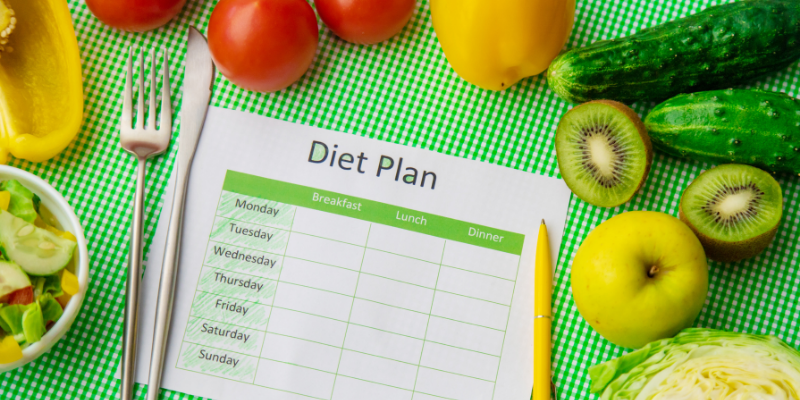Jaundice is a condition characterized by yellowing of the skin and whites of the eyes, caused by a build-up of bilirubin in the bloodstream. Bilirubin is a yellow pigment that is produced when red blood cells break down.
There are certain foods that can be beneficial for people with jaundice, as well as some that should be avoided.
Foods to eat:
- Fresh fruits and vegetables: These foods are high in antioxidants and vitamins that can help detoxify the liver and promote healthy digestion. Examples include carrots, spinach, apples, and berries.
- High-protein foods: Protein is essential for the body to repair and rebuild damaged tissue. Good sources of protein include lean meats, fish, eggs, and beans.
- Whole grains: Whole grains such as brown rice, quinoa, and oats are a good source of energy and can help regulate digestion.
- Spices such as turmeric and cumin: These spices have anti-inflammatory and antioxidant properties that can help support the liver.
Foods to avoid:
- Fried and fatty foods: These foods can increase inflammation and put a strain on the liver, making it harder for the liver to do its job.
- Alcohol: Alcohol consumption can damage the liver and should be avoided while recovering from jaundice.
- Processed and sugary foods: These foods can cause a spike in blood sugar levels, which can be hard on the liver.
- Caffeine: Caffeine can increase stress on the liver, so it is best to avoid or limit consumption of caffeine-containing drinks, such as coffee and energy drinks.
It is important to keep in mind that everyone’s body may be different and recovery may take different time frame, So it’s always best to consult with your doctor before making any major changes to your diet.
10 Foods To Eat In Jaundice
Boiled white rice can be beneficial for people suffering from jaundice as it helps in removing toxins from the body. It also helps in restoring the electrolyte balance in the body which is essential for the proper functioning of the organs. Additionally, boiled white rice is easy to digest and can provide essential nutrients to the body which can help in recovering from jaundice.
Boiled potatoes are highly recommended for people with jaundice. They are packed with vitamins and minerals, including vitamin C and potassium, which can help fight the symptoms of jaundice. Potatoes are also a great source of dietary fiber, which can help reduce constipation, a common symptom of jaundice. Boiling potatoes helps to retain the essential nutrients, making them a great option for people with jaundice.
Boiled carrots are considered to be one of the best foods to eat when you have jaundice. Carrots are high in beta-carotene, which helps to stimulate the production of bile and can help reduce the severity of jaundice. Carrots are also rich in other vitamins and minerals that can help the body fight off the infection. Boiling the carrots helps to make them easier to digest, and it can also help to reduce the intensity of the jaundice symptoms. Eating boiled carrots with meals can help to provide an extra boost of nutrition and can help to reduce the jaundice symptoms.
Boiled pumpkin is a great remedy for jaundice. It can be cooked with a pinch of black pepper and coriander powder to make it more palatable. Eating boiled pumpkin regularly can help remove toxins from the body, which is beneficial for people suffering from jaundice. It helps in restoring the balance of the bile salts, which helps in reducing the symptoms of jaundice. Pumpkin is also a great source of Vitamin A and C, which helps in improving the immune system. Additionally, boiled pumpkin can provide relief from indigestion and constipation which are common symptoms of jaundice.
can also help to reduce the yellowing of the skin in jaundice. Additionally, supplementing the diet with Vitamin C-rich foods such as citrus fruits, bell peppers, and spinach can help the body to better process and eliminate the bilirubin from the system.
are a traditional remedy for helping to improve liver function and treating jaundice. Prunes are rich in antioxidants and have anti-inflammatory properties which can help protect the liver from infection and damage. They are also high in potassium, which helps to flush out toxins from the body and can help reduce the risk of developing jaundice. Furthermore, prunes contain high levels of iron, which helps to increase red blood cell production and improve circulation. Eating stewed prunes regularly can help treat jaundice and other liver-related issues.
Low-fat yogurt can be beneficial for people suffering from jaundice. It provides essential nutrients like proteins, carbohydrates and fats, as well as vitamins, minerals, and electrolytes that help in liver regeneration. Additionally, yogurt is rich in probiotics which helps to reduce constipation that is common in patients with jaundice. Therefore, having low-fat yogurt can help improve the condition of a person with jaundice.
are important to include in your diet if you are suffering from jaundice. They are a great source of protein and help to keep your energy levels up. Lean meats such as chicken, turkey, and fish are all good choices. Make sure to cook these meats thoroughly to remove any bacteria that can cause further health problems. Avoid fatty meats, such as bacon and processed meats, as they can be harder for your body to digest.
Low-fat cottage cheese is a safe and healthy option for people with jaundice. It is a good source of protein and other essential vitamins and minerals. It is also low in fat and cholesterol, making it a good choice for those who need to watch their fat intake. Cottage cheese can be a great source of calcium as well, helping to build strong bones and muscles. Eating it in moderation can help maintain a healthy weight and provide necessary nutrition.
are also beneficial for people with jaundice. These soups and broths provide essential electrolytes, vitamins, and minerals without the added sodium. Additionally, clear soups and broths are easy to digest and may help reduce nausea associated with jaundice. These soups and broths can also provide additional hydration, which is important for people with jaundice since they often experience dehydration.
10 Foods To Avoid In Jaundice
should be avoided as they can contain harmful bacteria that can cause serious health complications, including jaundice. Raw, unpasteurized milk, cheese and other dairy products should be avoided as they can contain bacteria, such as E. coli, that can cause jaundice if ingested. Additionally, it is important to note that even pasteurized dairy products can contain harmful bacteria, so it is important to ensure that dairy products are fresh and have not been contaminated in any way.
Processed meats should not be consumed if you are experiencing jaundice. These meats are high in sodium and saturated fat, which may worsen the symptoms of jaundice. Additionally, processed meats are often cured with nitrates, which can be toxic to the liver. It is best to avoid processed meats when suffering from jaundice and to opt for leaner sources of protein such as poultry or fish.
It is generally recommended that people with jaundice avoid foods high in fat, as they can interfere with the body’s ability to metabolize the bilirubin that has built up. Instead, it is best to focus on eating foods that are high in fiber, such as fruits and vegetables. These foods help to promote healthy digestion and can help reduce the symptoms of jaundice. Additionally, it is important to drink plenty of water to help flush out the toxins that have built up in the body.
Alcohol intake can cause an increase in the bilirubin level, which is a pigment that gives jaundice its yellow color. This can result in an increase in the intensity of the yellow color in the skin and eyes. Alcohol can also increase the risk of developing acute and chronic liver disease, further worsening the symptoms of jaundice. In addition, alcohol can interfere with medications used to treat jaundice, such as antibiotics, and can increase the risk of complications. For these reasons, it is important to avoid alcohol when you have jaundice.
Caffeine consumption may be beneficial in treating jaundice. Studies have shown that caffeine can reduce the levels of bilirubin in the blood, which is the main cause of jaundice. Caffeine can also help to improve the functioning of the liver, which can help to reduce the symptoms of jaundice. It is important to note, however, that caffeine should be consumed in moderation and should not be used as a replacement for more traditional treatments for jaundice.
Refined sugars can cause an increase in jaundice symptoms. Eating a diet high in refined sugars increases the levels of bilirubin in the blood, which can increase the severity of jaundice. Consuming too much sugar can also lead to weight gain, which can make the symptoms of jaundice worse. To prevent jaundice from getting worse, it is important to avoid foods and beverages high in refined sugars and to opt for healthier alternatives. Eating a balanced diet with plenty of fruits, vegetables, and lean proteins can help reduce the risk of jaundice.
It is important to avoid foods that are high in salt when dealing with jaundice. Foods such as processed foods, canned soups, cured meats, pickles, and sauces can all be high in salt and should be avoided. Foods that are high in fiber, such as fruits, vegetables, and whole grains, are recommended to help with jaundice. Additionally, drinking plenty of water can help flush out the body, which can help reduce jaundice symptoms.
Fried foods should be avoided when living with jaundice because they are high in fat and can be difficult to digest. Additionally, fried foods can cause an increase in the level of bilirubin in the blood, which is a key factor in causing jaundice. Furthermore, fried foods can cause inflammation and worsen the symptoms of jaundice. To maintain a healthy diet while living with jaundice, it is best to opt for lighter, grilled or boiled foods as opposed to fried.
Spicy foods should be avoided in jaundice, as it can aggravate the symptoms. People with jaundice should eat a balanced diet that is light and easy to digest. This means avoiding spicy and greasy foods, as well as fried and processed foods. It is important to drink plenty of fluids and eat plenty of fruits and vegetables, as they are rich in antioxidants, minerals, and vitamins that can help the body recover from jaundice.
Canned foods in jaundice should be avoided as much as possible. These foods are typically high in salt and sugar and can contribute to further dehydration, which is a common symptom of jaundice. Eating fresh, unprocessed foods that are high in water content and vitamins is the best way to ensure proper hydration and nutrition while dealing with jaundice. Fruits and vegetables are especially beneficial during this time since they contain high amounts of water and essential vitamins and minerals. Additionally, drinking plenty of fluids is essential for hydration and overall health.




